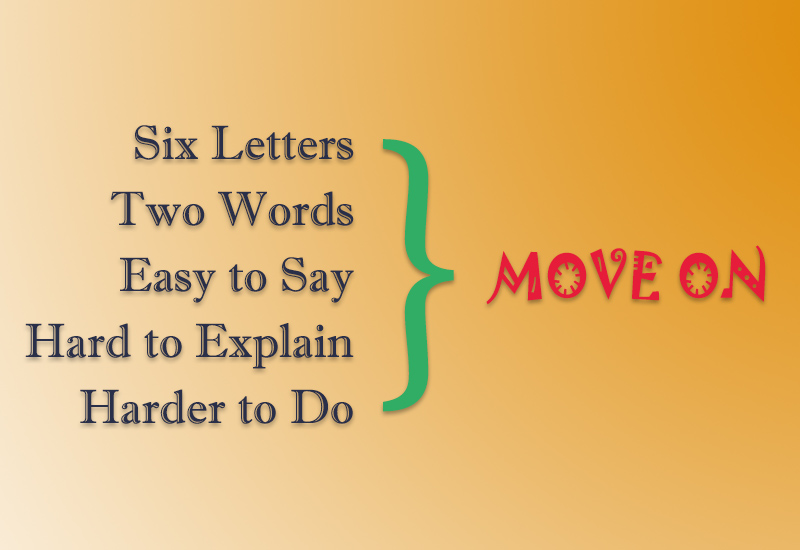 I’ve discovered of late a new catch phrase that’s become oft times heard, abused, and certainly mis-used. That phrase is, “Let’s move on.” I’ve had it used on me more frequently and even caught myself using it a time or two. It seems to me to be a sort of quick fix of not wanting to dig a little deeper in the cause and effect of a problem where we find the real long term remedies. The glossing over and quickly fixing problems in this business of moving on, may create a short term cure but indeed doesn’t resolve deep seated differences as well as hurts that were apparently caused by something that was either said or done in a fashion that was less than easily forgivable.
I’ve discovered of late a new catch phrase that’s become oft times heard, abused, and certainly mis-used. That phrase is, “Let’s move on.” I’ve had it used on me more frequently and even caught myself using it a time or two. It seems to me to be a sort of quick fix of not wanting to dig a little deeper in the cause and effect of a problem where we find the real long term remedies. The glossing over and quickly fixing problems in this business of moving on, may create a short term cure but indeed doesn’t resolve deep seated differences as well as hurts that were apparently caused by something that was either said or done in a fashion that was less than easily forgivable.
Say someone you know comes up to you and spits in your face and you become enraged by the insult. After the tongue lashing you’ve likely given that person, he or she turns to you and says, “I’m sorry for what I did, so let’s move on.” Everything seems back to normal right? Wrong. Nothing is really back to normal because there was no explanation as well as debate as to what brought that person to the point of spitting in your face. The spitting wasn’t in a weak moment of anger by the one who spat, but it was pre-meditated and deliberate. So here we are at a juncture where we either “move on” and pretend that everything is back to normal, or we reject the moving on from the one who spat in your face until there is a real reason given as to why the insult was committed. Someone who is in a managerial position consumed hours and hours of my time some years ago and after that time freely given by me, he wouldn’t even return a phone call after he got what he wanted.
Not but a year ago I happened to run into him at a social gathering and in a teasing yet deliberate way, I brought up the subject of his not returning my calls and freely moving on in another direction with his project. I said to him, “I considered it quite rude after all those hours spent with you and your lack of simply returning a phone call was really not business-like.” He gave me flimsy excuses and finally said, “I’m sorry OK? Now let’s forget it and move on.” I smiled and said, “At least at this time you realized your wrong-doing.” I’m sure he believes he’s off the hook with me, but really not because people who are confronted about something they’ve done wrong and make too much light of their actions, tend to be habitual in the way they interact with others. We must be careful with those who intentionally cross boundaries expecting their payment for mis-conduct to be a simple, “I’m sorry. Now let’s move on.”
Perhaps this idea of moving on is the off-spring of society being so wrapped up in the hour long dramas where as children they sat in front of their televisions and came to the conclusion that all problems are created, dramatized, and resolved in one hour time frames. Real life isn’t a television soap opera or sitcom. Sometimes problems and hurts quietly grow over months and years, and when the point of confrontation takes place, I can’t possibly imagine the catch phrase, “I’m sorry, now let’s move on.” to bring everything back to normal. Let’s be a little more careful in the use of “moving on”.
